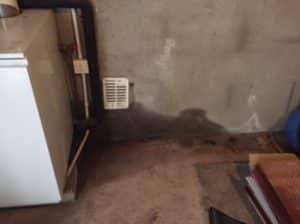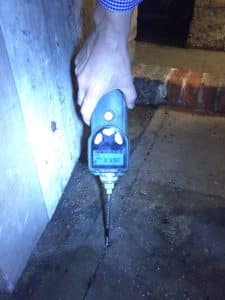Does oil affect concrete?
Does Oil affect Concrete?

Does oil affect concrete? By that we might mean a few different things such as: Will oils such as petrol, diesel, home heating oil, engine oil have a negative affect on concrete such as causing it to lose strength? Will oil affect different characteristics of concrete? So, does oil affect concrete? Let an expert from Gaea explain:
These are valid questions that anyone who has suffered from an oil spill might be asking.
• Affect of oil on Mature Concrete
• Affect of oil on Fresh Concrete
• What can impact concrete
• What do oils do to concrete?
• Where might concrete be affected?
• How is this fixed?
Affect of Oil on Mature Concrete
Does oil affect mature concrete? The consensus is that oil does not affect mature concrete, although there are a few exceptions. Home heating oil, petrol, diesel, engine oil do not generally negatively impact the strength of concrete and concrete products.
Affect of oil on Fresh Concrete
Does oil affect fresh concrete? By this we mean brand new concrete that is brought into contact with oil before it has had time to properly and fully cure to its design strength. An example of this would be pouring strip foundations or a concrete raft directly on to earth that is impacted by oil. The reported affect of exposing fresh concrete to oil is a 25% loss of final strength. This could be detrimental to a foundation or overall structure. Very large sums of money are spent every year on contaminated land investigations to avoid such occurrences.
What Oils can Impact Concrete
So, what oils can impact concrete? Mature, cured concrete can still be impacted by a number of oils. The first oil that can impact concrete is creosote. That right, the same stuff used as wood preservative or fence paint. So be careful when using this around anything concrete or containing cement. The second is certain types of lubricating oil. Some types of lubricating oils that contain fatty oils can degrade to release fatty acids. Which can then impact concrete.
What do oils do to concrete?
What do oils do to concrete you say? Well basically they make them smell of oil, make them slippery and other things that you might expect. The problem is that when some of the building products used in your home start to smell of oil this can be a nuisance. As long as we are talking about the likes of petrol, diesel and home heating oil / kerosene spillages the main concern is odours.
Where might concrete be affected by oil?

Testing concrete materials for oil
Where might concrete be affected? Imagine living in a house with an oil burning range cooker in the kitchen? If any of you have ever gotten some fuel on your hands at the petrol station you will know that it can take a while to get the smell off, even with scrubbing with soap. Now, if you didn’t realise and touched your steering wheel for instance it can take ages for the smell to full disappear. Now, imagine if your fore mentioned range cooker spilled oil onto your concrete floor?
The same is true if you had an oil spill on the outside of your home and the concrete foundations became impacted by oil. There will be a lingering oily smell that will loiter for a very long time.
Building products around boilers and tanks, foundations, brick and block and surface materials such as patios and driveways can all be adversely impacted by oil spills. For Human health implications of oil spills the most concerning is when the concrete blocks between foundation and floor level become impacted by migrating oil spills.
Think of a concrete block as a very hard but very porous material with uneven joints. Oil spills will readily move through these joints and also into the porous matrix of the block.
How is this fixed?

Oil affect concrete bricks – worst case scenario is the careful removal and replacement of impacted brick.
How is this fixed? Even if no oil contamination has migrated below your home and all of the external oil contamination is removed you might well still be suffering from oil fumes. This is because the concrete matrix may have been impacted and the spaces in the block are now full of oil. This oil is then capable of giving rise to vapours by evaporation that can then enter your home.
The first step is assessment. Unfortunately, this can only be done once an external excavation has been undertaken. An assessment would take the form of drilling into the materials and following removal of any dust vapour readings would be taken directly from the material. Series of readings would then be tabulated and placed onto CAD drawings. This allows for a visual appreciation of where the contamination is distributed. Based on the implied concentrations of oil in each material and assessment can be made as to which technique should be employed to address the risk posed by the contamination. This can range from some passive venting to allow the material to air out, right through to removal and replacement of the material.